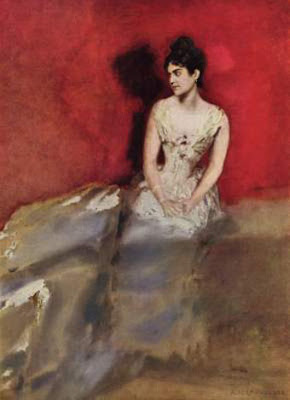Around 1300:
- Dante Alighieri Florence, (1265-1321)
- Marco Polo, Venice (1254-1324).
- Giovanni Boccaccio, Florence (1313-1375)
Around 1400:
- Geoffrey Chaucer, London (c.1343-1400)
- Jeanne d'Arc. France (c.1412-1431)
Around 1500:
- Leonardo da Vinci, Vinci (1452-1519)
- Niccolo Machiavelli, Florence (1469-1527)
- Raphael, Florence (1483-1520)
- Christopher Columbus, Italy and Spain (1451(?)-1506)
Around 1600:
- William Shakespeare, London (baptised 1564, d.1616)
- Galileo Galilei, Pisa (1564-1642)
- René Descartes, France (1596-1650)
- Pierre Gassendi, France (1592-1655)
Around 1700:
- Isaac Newton, England (1643-1727).
Snippets:
~~~~~~~
Music: 8/13/06: Caffe Vivaldi, 32 Jones St (Off Bleecker Street Near Seventh Ave) NYC: 1.) Brianne Chasanoff. Singer. Rather quiet. 2.) Amy Laber. Folk singer. Quiet.
~~~~~~~
Weather: National Weather Service and National Snow Analysis.
~~~~~~~
Philosophy: Pierre Gassendi (1592-1655): French philosopher, scientist, astronomer/astrologer, and mathematician. Disputes with Descartes.
~~~~~~~
Movie: Das Leben der Anderen (The Lives of Others, 2006) . Directed by Florian Henckel von Donnersmarck. w/ Sebastian Koch (Georg Dreyman), Ulrich Mühe (Captain Gerd Wiesler), Martina Gedeck (Christa-Maria Sieland). in the GDR around 1985, a successful writer and his girlfriend, a popular actress, are wire-tapped by the secret police because he is suspected to oppose the regime. But the officer in charge of the operation becomes infatuated with their lives. Clearly defined roles for each character, which sometimes makes the movie too static. Devastatingly realistic though. Overall rating: 7 out of 10.
~~~~~~~
DVD: Bird (1988). Directed by Clint Eastwood. w/ Forest Whitaker (Charlie 'Bird' Parker), Diane Venora (Chan Parker), Michael Zelniker (Red Rodney). Life of jazz saxophonist Charlie Parker (1920-1955), his creativity, drug addiction, family (common-law wife Chan Parker) and the music of his time. Great music! In 1945, Bird was about 10 years ahead of his time. Overall rating: 7 out of 10.
~~~~~~~
Jazz: Baroness Pannonica (Nica) de Koenigswarter (1913-1988). Considered one of the most important patrons and friends of modern jazz musicians in NYC in the 1950s and 1960s. Charlie Parker died in her suite at the Stanhope (995 Fifth Avenue, across from the Metrolopitan Museum) in 1955. Was also close to Thelonious Monk and his family. In October 2006 the French company Buchet Chastel published Nica's book 'Les musiciens de jazz et leurs trois vœux' (The Jazz Musicians and their Three Wishes). Compiled between 1961 and 1966, it is a book of interviews with 300 musicians in which she asked each for their "three wishes", and is accompanied by her Polaroid photographs. The book was edited for publication by her granddaughter Nadine de Koenigswarter.
~~~~~~~
Photography: Joe Brown. Includes a guide to Zion National Park with photos.
~~~~~~~
Art: Bauhaus: Art and architecture school in Germany, 1919-1933 (U.S 1937-1938). Existed in four different cities: Weimar 1919-1925, Dessau 1926-1932, Berlin 1932-1933, Chicago from 1937 to 1938). Important members: Walter Gropius, Hannes Meyer, Ludwig Mies van der Rohe, Laszlo Moholy-Nagy, Henry van de Velde, Lyonel Feininger, Johannes Itten, Josef Albers, Paul Klee (starting 1921), Wassily Kandinsky (starting 1922) und Oskar Schlemmer (staring 1921). Wanted to emancipate the arts from industrialism and revieve crafts, opposing the aesthetics of Historism ('an organic succession of developments') of the late 19th century in which various styles were mixed and crafted ornaments were simply repeated by industrial manufacturing. The Bauhaus Dessau is a building designed by Gropius that housed the school. Partly destroyed in 1945. Reconstructed in 1976.
~~~~~~~
Art: Albert von Keller (1844-1920). Swiss painter. Worked in Munich. Society painter. Known for painting elegantly clothed ladies. Can be viewed at the Neue Pinakothek, Munich, Germany.
 Albert von Keller-Die Frau des Kuenstlers, 1900
Albert von Keller-Die Frau des Kuenstlers, 1900Art: Online Exhibition: Gothic Nightmares. Fuseli, Blake, and the Romantic Imagination (at the Tate Britain Feb 15 - May 1, 2006). Explores the work of Henry Fuseli and William Blake in the context of the Gothic – the taste for fantastic and supernatural themes which dominated British culture from around 1770 to 1830.
~~~~~~~




